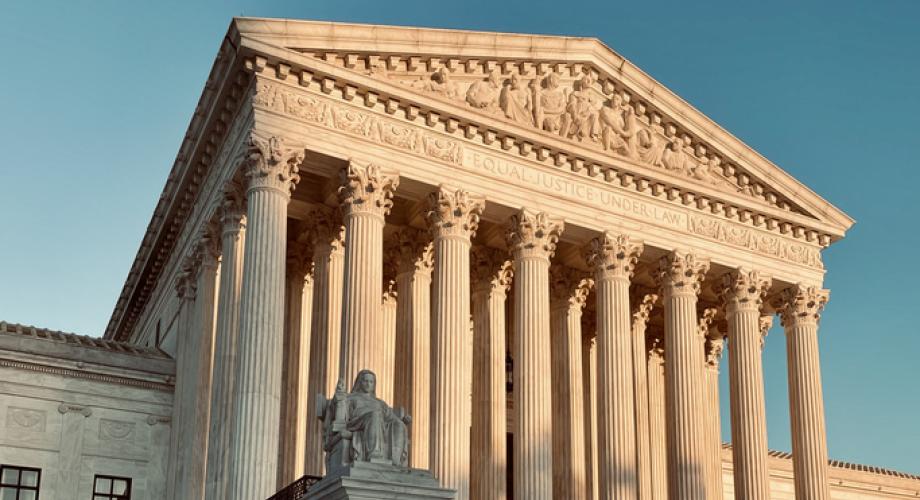Background
In 2018, several housing providers and a rental housing trade association sued the City of Seattle, challenging the city’s Fair Chance Housing Ordinance (the Ordinance). The federal lawsuit, Yim v. City of Seattle, alleged that the Ordinance violated the housing providers’ federal and state substantive due process and free speech rights. More specifically, the housing providers argued that the Ordinance’s inquiry provision prohibits them from inquiring about the criminal history of current or potential residents, except for extremely limited exceptions, and from taking adverse action, such as denying tenancy. The National Apartment Association (NAA) filed a friend-of-the-court brief supporting the housing providers and emphasizing to the court a central principle in the rental housing industry: That it is not in the business interests of rental housing providers to reject potential residents without good cause. On July 6, 2021, the U.S. District Court for the Western District of Washington (Seattle) denied the housing providers’ motion for summary judgment and granted the City’s motion for summary judgment, upholding the constitutionality of the Ordinance.
The housing providers appealed to the United States Court of Appeals for the Ninth Circuit. Judge Kim Wardlaw’s March 21, 2023, ruling affirmed the lower court’s decision on due process and reversed the lower court’s ruling on free speech.
- In affirming the lower court’s ruling, Judge Warlaw, applying the rational basis test to the adverse action provision, held that the adverse action provision did not violate the housing providers’ substantive due process rights to exclude persons from their property because the "Supreme Court has never recognized the right to exclude as a “fundamental” right in the context of the Due Process Clause” (citing Cedar Point Nursery v. Hassid). Judge Warlaw also pointed to precedent in the Ninth Circuit, citing case law from 2021, where the court held that “[t]he right to use property as one wishes is also not a fundamental right.”
- In reversing the lower court’s ruling on the inquiry provision, Judge Warlaw held that the inquiry provision was subject to intermediate scrutiny, ultimately concluding that the inquiry provision violated the housing providers’ First Amendment free speech rights, stating that “…a complete ban on any discussion of criminal history between the landlords and prospective tenants—is not “in proportion to the interest served” by the Ordinance in reducing racial injustice and reducing barriers to housing.”
Judge Wardlaw also sent the case back to the district court so the parties could address the Ordinance’s severability clause.
Journey to the Supreme Court
The Ninth Circuit’s ruling left an important question unresolved for the housing providers: “Whether Seattle’s restriction on private owners’ right to exclude potentially dangerous tenants from their property violate the Fourteenth Amendment’s Due Process Clause?” Upon a denial of the Ninth Circuit to rehear this issue en banc along with a First Amendment issue presented by the City, the housing providers petitioned the SCOTUS to review the case and settle this important question. NAA, along with the Washington Multi-Family Housing Association and Apartment Owners Association of California, Inc., filed a friend-of-the-court brief in support of the housing providers’ petition for review. Unfortunately, the SCOTUS denied review on January 22, 2024.
A Partial Win
The Ninth Circuit’s ruling on the inquiry provision is a partial win for Seattle housing providers. Prior to the Ninth Circuit’s ruling, the Seattle Office for Civil Rights enforced a blanket ban on criminal screening, prohibiting housing providers from all inquiries into a resident’s or applicant’s criminal history, except for extremely limited exceptions. However, the adverse action provision of the ruling still prevents housing providers from denying applicants housing based on their criminal history.
This case does not end with the Ninth Circuit’s ruling. The parties still have to brief and argue before the lower district court on the issue of severability. If the housing providers are successful in challenging the presumption of severability, the entire Ordinance would be deemed invalid, not just the Ordinance’s inquiry provision. If the City is successful, the Ordinance would remain valid and the inquiry provision would be severed as an unconstitutional provision.
Why This Matters
The Ninth Circuit’s analysis and ruling was specific to Seattle’s Fair Chance Housing Ordinance. Not every criminal screening ban under the Ninth Circuit’s geographic jurisdiction is automatically deemed unconstitutional because of the court’s analysis of the Seattle Ordinance. Housing providers will have to challenge other state or local criminal screening bans for a court to determine the constitutionality of those bans.
NAA continues to partner with its affiliate network to challenge bad policy and ensure the industry’s voice is heard in housing policy conversations. Policymakers must remember that a criminal background check is one, yet important, part of the overall resident screening process. Resident screening is an essential operational function to help owners and operators mitigate risks to their rental communities, residents and staff. NAA opposes all efforts to limit apartment owners and operators from evaluating a prospective resident's criminal history as part of the overall screening and risk mitigation process.
Should you have any questions, please contact Ayiesha Beverly, NAA General Counsel at [email protected] or Joe Riter, Senior Manager of Public Policy at [email protected].
